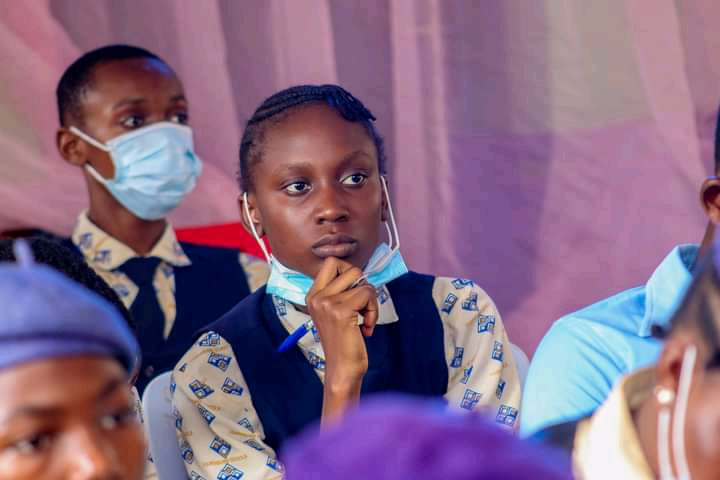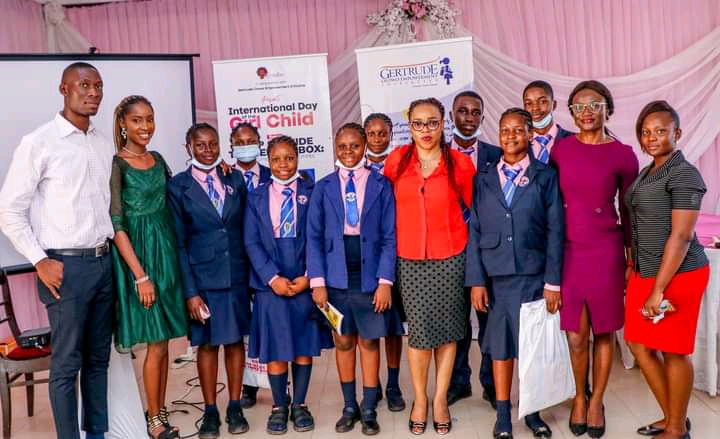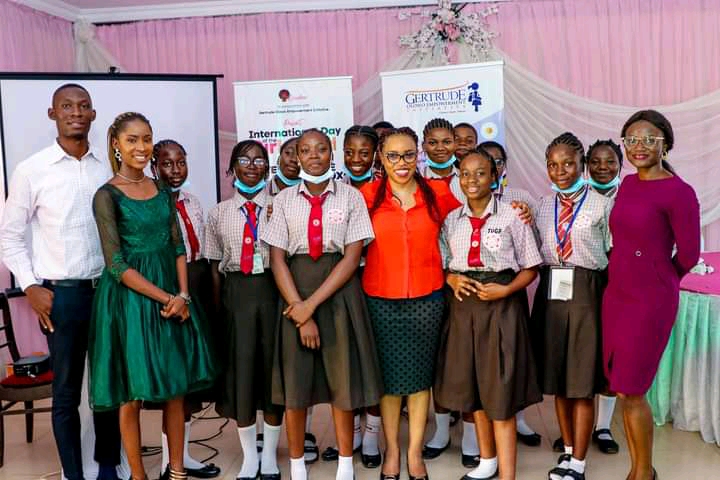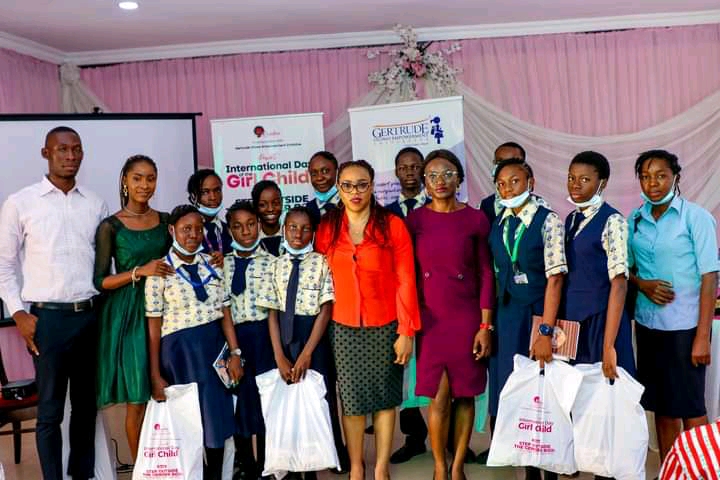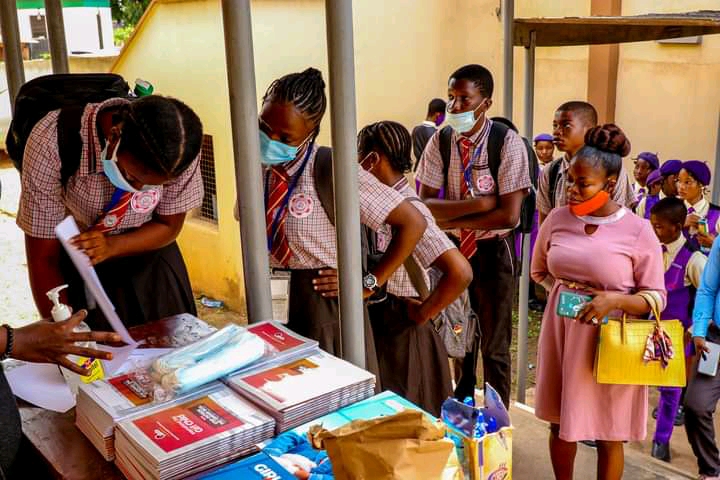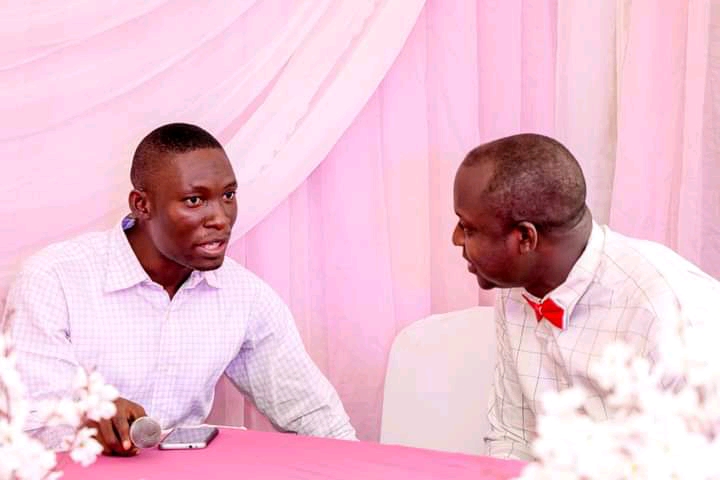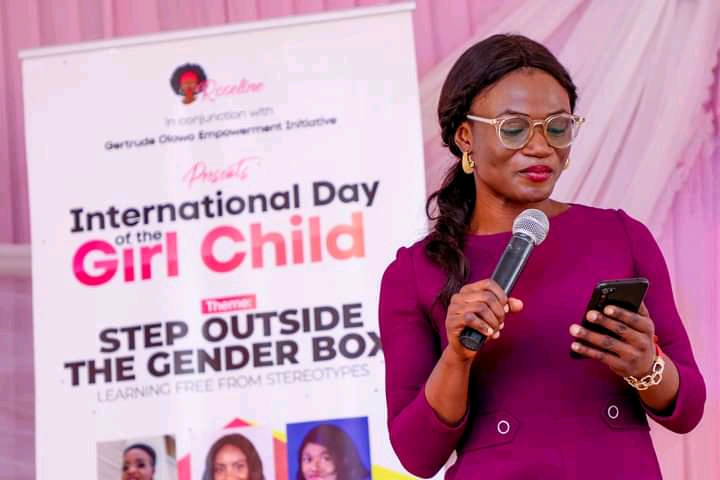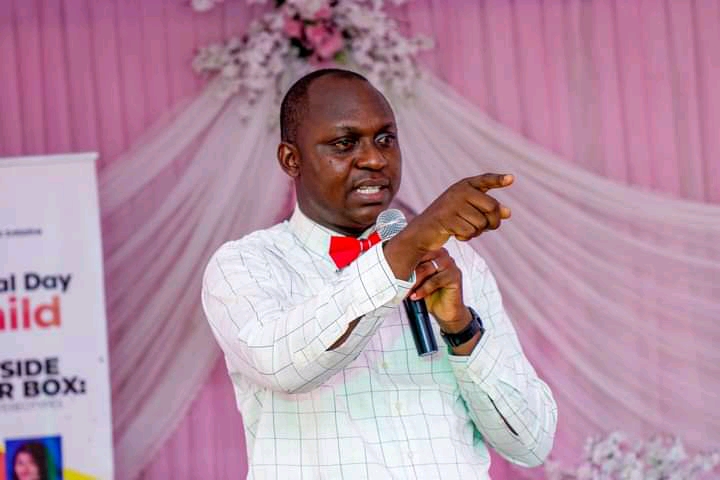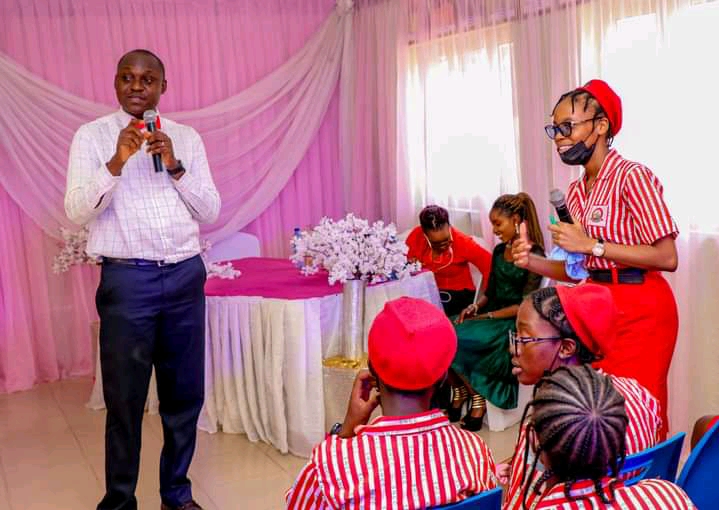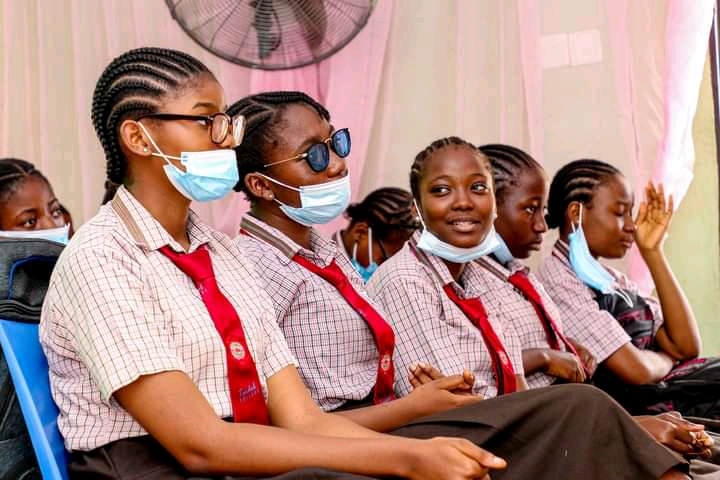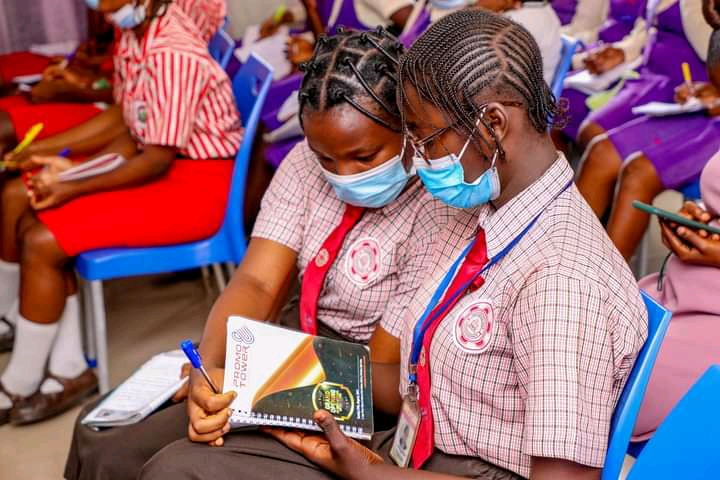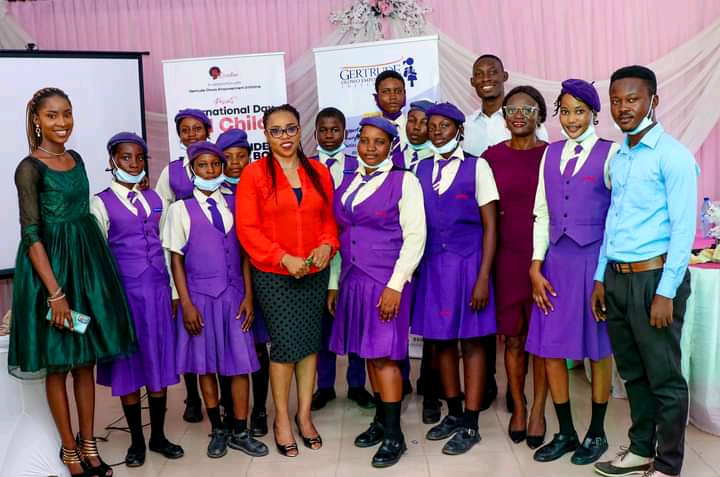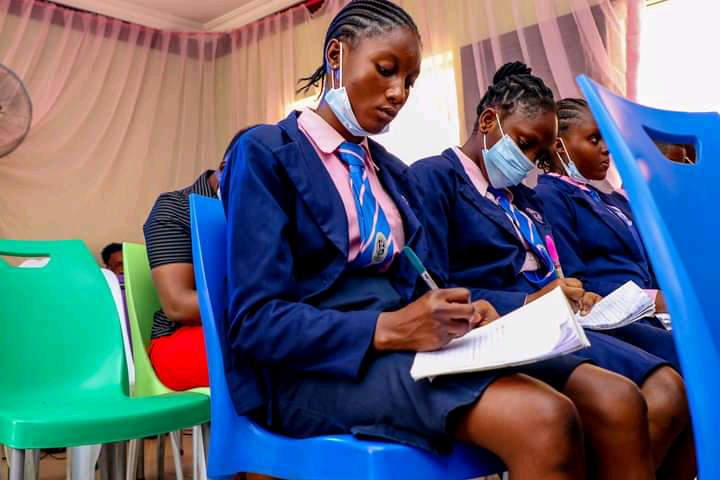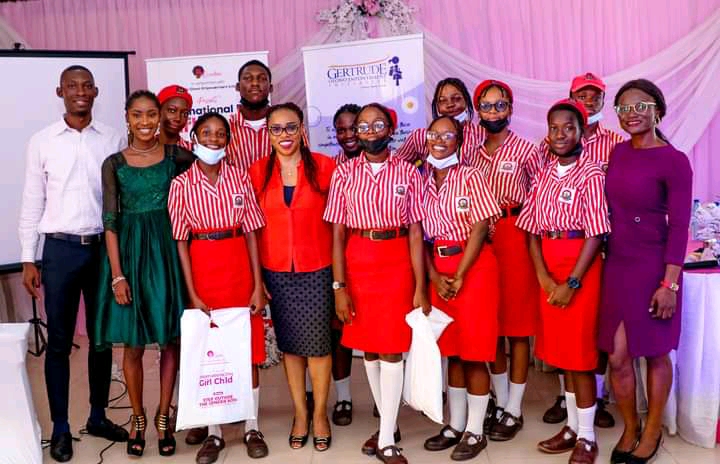Nigerian born gender advocate, social educator, french instructor and a passionate blogger on Girl-Child matters, Roseline Adebimpe Adewuyi in this interview with Tropic Reporters Correspondent, Adejola Adeyemi Crown spoke extensively about gender based issues, her programmes and other sundry issues. Excerpts…
Care to tell us about yourself?
I am Roseline Adebimpe Adewuyi. A social educator, a gender advocate, a French instructor, and a passionate blogger on girl child matters. I have a B.A., First Class Honours, in French from Obafemi Awolowo University and an M.A. (Distinction) in French from the University of Ibadan. I am also a 2016 YALI RLC alumnus, a ONE Champion 2017 participant, and a 2018 Dalai Lama Fellow. My area of specialization as a French Literature student has been Feminist Theory. This focus strengthens my academic knowledge in the field of advocacy. From 2019 to 2020, I worked as a Translator and Interpreter with the African Union. I have been a public speaker in many platforms mentoring teenagers in gender capacity developments, and my gender equality advocacy has availed me a privileged access to events, conferences, and work-based relationships with various groundbreakers and organizations in the USA, Ghana, Ethiopia, Rwanda, Algeria, among others.
Gender advocacy is a broad area of work. Which aspect(s) of this advocacy do you focus on?
My primary advocacy work is on building the complete, self-reliant girl child. I am dedicated to helping the girl child shatter glass ceilings that impede her growth, sever the hold of gender stereotypes that stifle her behavioural makeup, teach her to abandon societal constructs that are inimical to her personal growth, and re-orient her to break the chains of deeply entrenched indoctrinations.
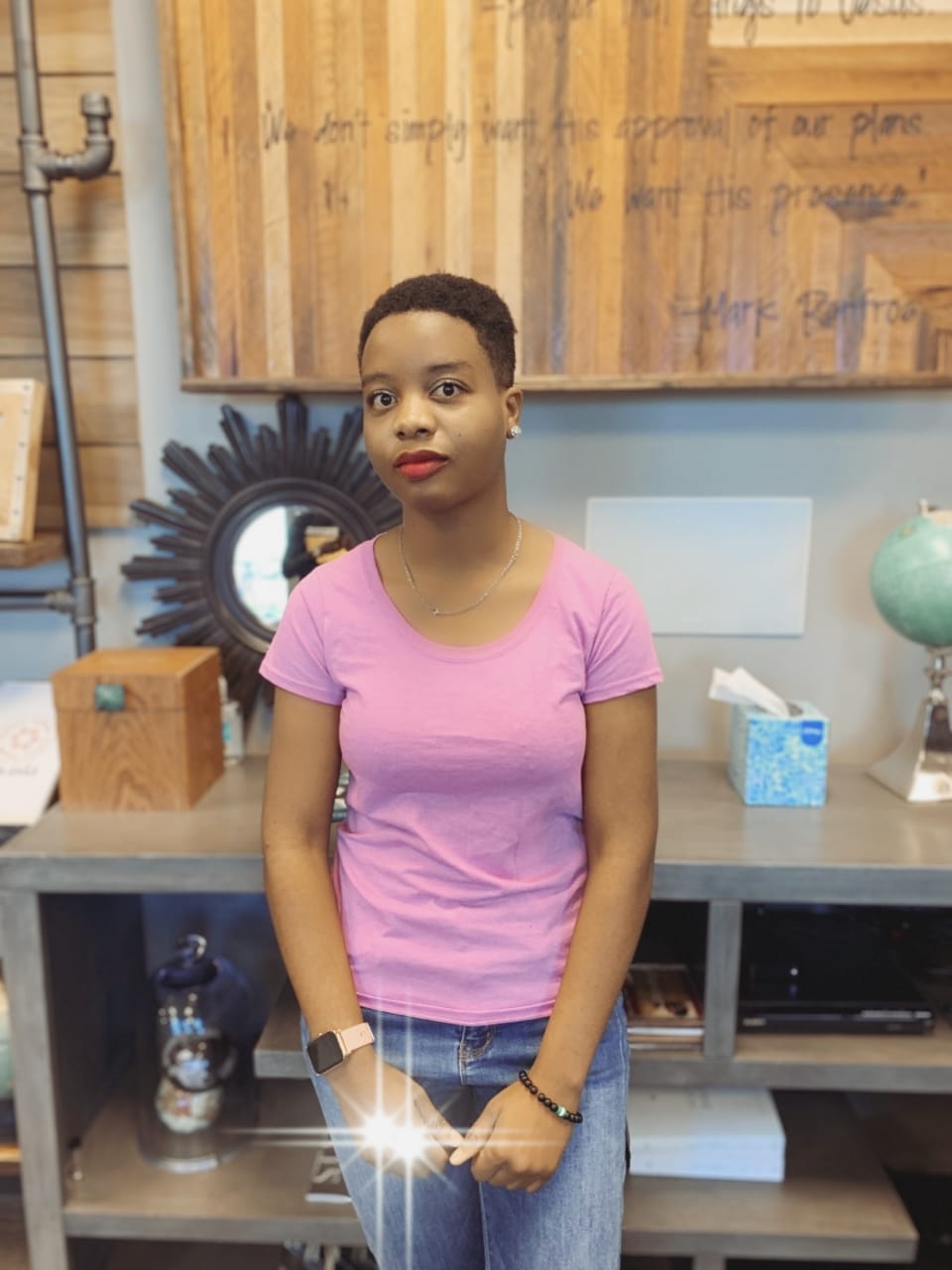
My perpetual end goal is to imbue young girls with the gusto and learning acumen to discard societal-influenced scripts, and instead, help them to consciously choose to adhere to the paths of their self-decided purposes. To achieve this, I organise trainings, seminars, workshops and set up other educational yet thrilling events from time to time. My primary target audience is secondary school girls as they have a somewhat pristine mind, untarnished by societal dictates. I want them to grow out of the stifling spaces boxing them in, preventing them from spreading their wings, and taking to the sky, where they can only soar to the ends of time. Is it not a daunting task? Of course, it is. Is it not taxing? No doubt. However, in as much as, at least, one girl child benefits from an activity, at a time, I rest assured that the results will become so infectious in no time, that reaching to the ends of the world, to unchartered corners of this nation, will become a facile achievement. One girl at a time. That’s the goal. That is the eternal drive.
The International Day of the Girl Child is observed Oct. 11 as a global observance declared by the United Nations to promote girls’ empowerment and the fulfilment of their human rights. What impact does this have in the society?
The International Day of the Girl Child is a day set aside by the United Nations to turn people’s attention to girls’ challenges and girls’ needs. It focuses on the need to address the challenges that beset girls, and to promote girls’ empowerment and the enforcement of their human rights. It is a pivotal occasion, because, on this day, we not only celebrate and amplify girls’ voices everywhere but also show the world how girls, like boys, are an essential and expedient part of our society.
How does your Initiative support girls to build a brighter future?
When it comes to girl child advocacy, I specialize in breaking gender stereotypes and unlearning deeply entrenched indoctrinations and societal constructs that are regressive to women. I teach young girls to discard society’s scripts and follow their individual purpose. I do this by organizing trainings, seminars, workshops and other educational and fun events from time to time. My target audience is usually girls in the secondary schools. I want them to see life apart from the boxes they’ve been made to fit into. I want them to experience life without limits. I want them to be all that they can be regardless of what they’ve been told in the past. So far, I am grateful for the impact we are making — one girl at a time.
Some schools of thought believe that women are dominating the men’s world. What is your take on this?
The fact that we are having this conversation is evidence that it is a grossly untrue statement. I think that many people who support invalidated premises such as this do to stifle our advocacy and turn the limelight away from the challenges of inequality pulling down the society. Granted, there are privileges that patriarchy gives women. But this doesn’t alter the status quo that patriarchy sees women as an enfeebled gender, who should be given crumbs, but not seen, or heard. Pray tell me, of what use are petty privileges when you have been rid of your voice? I am all about justice and fairness. I have never seen men as a threat to my success nor regard them as a gender to be overthrown. For me, unity, coexistence, and mutual, beneficial dependence are key elements to achieving societal development, and both genders need to be seen as equal functional parts of society. In fact, the two genders have key roles to play and the differences we have reinforce mutual dependence on each other.
What do you think should be done to promote gender equality in the society?
Education and Re-orientation. People need to be taught that men and women are equal in value, and they deserve to be treated with the same civility. We should teach this in schools, at homes, in our places of worship, in markets, aboard public transports, too. We should teach this everywhere and anywhere. Of course, we also need laws to enforce to protect against discrimination but I strongly believe that change starts from the mind. When people understand that women are not inferior to men, a lot will change in our society.
As a Gender Advocate, what do you think should be done to address gender barriers and problems?
We need laws that preclude gender discrimination in any form. Not just laws on paper but laws that will be enforced by appropriate authorities. People should realise it is a crime to deny women access to education, jobs, salaries commensurate to their work delivery, housing, and certain rights and privileges because of their gender.
Gender issues and programmes are not only meant for the girl child or women. Do you have programme(s) for the boy child and for men or have you championed Boy-child advocacy programme?
In all my programmes, boys and girls are participants. We also have male facilitators and panelists.
Definitely. I am as equally passionate about the holistic development of the boy child as I am about girl child advocacy. But since I can barely relate to their everyday experiences as I can to the girl child’s, I am not equipped to be a driving force for frontline boy child advocacy.
Regardless, I am not resting on my oars. On my blog, I dedicated a series to the wholesome development of the boy child.
There, boy child advocates share their works and inspiring experiences with the world. The series revolves around activities discussing passion, challenges, motivations, visions and dreams of the boy child.
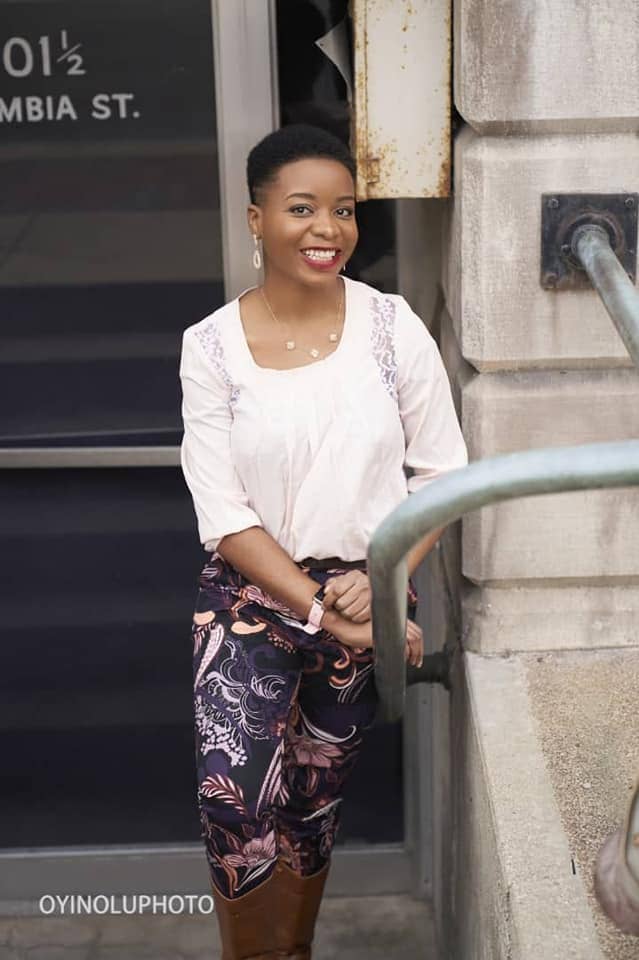
It provides the boy child with insights into becoming a better version of himself, the challenges no matter. It is titled ‘Men Picking up the Gauntlet’ on my blog, roselineadewuyi.com.
And, of course, it affords me a front-view chance to witness the efforts of well-meaning individuals who do not want the boy child to be pigeonholed. After all, I am dedicated to helping the girl or boy child become whatever they choose as well as realise their potentials. It’s all love and light here—no competition, no power tussle.
What new programmes are you currently working on?
At the moment, I am currently working on teaching girls and young women to improve their digital skills and setting up a physical hub for young girls where they can learn.
How do you manage the numerous stress associated with your workload?
Self-care helps keep one mentally sound, physically fit, and all-round ready to get things done. So, I log off from time to time to recoup my strength. This keeps me refreshed, rejuvenated, and raring to go.
As an activist-cum-gender advocate, how have you been able to manage the two?
I like to think of my activism and advocacy as subsumed in one singular passion. And honestly, I prefer the term advocacy because it is more of what I do. I am a gender advocate. My approach to pushing this quest of gender equality is that of persuasion and education. I expect people to relate to my goals by presenting undeniable facts, telling relevant stories, painting relatable scenarios, among others. Hence, the leaning towards the term, ‘gender advocate’. Thank you.
As a passionate gender equality advocate, what has been the most challenging project you have carried out and how were you able to get it done?
In restrospect, till date, the most challenging project I have carried out was during my National Youth Service Year when I staged a personal community development project. I was just starting out at the time, and of course, my heart was heavy with doubts. I was shelled with struggles regarding the implementation of various projects I had in mind. The onus fell on me to do the planning, project management, crowdfunding. That was a daunting task to handle as a first-timer. Thank God for the support system around me, I was able to pull through. In all, the challenges made me resilient and lessons I learnt from my experience have shaped my advocacy. And since the buck of the work stops on my table, I had to learn to think on my feet to make profitable decisions.
How would you define the girl child’s voice and place in contemporary Nigeria?
To be honest, though, the situation appears to be looking up. With role models to look up to like Ibukun Awonsika, Dr. Ngozi Okonjo-Iweala, Kemi Adetiba and so on, girls are beginning to see that they have a place in society. In their time, they are witness to more women occupying places of leadership, more women running for political offices; women vice chancellors, even women priests, and religious leaders. Consequently, these people in the forefront are affecting the girls, too, with their impacting lives. Girls are now taking up leadership positions. We hear of female faculty presidents and female SUG presidents in our universities. In secondary schools, girls no longer want to only study courses that were once tagged feminine-centred. More girls want to code. More girls want to be economists, mathematicians, physicists, medical doctors, go into sports, and so on. So, yes, the girl child is finally taking her rightful place on the Nigerian scene, and realizing that she can be more than she was deemed to be.
In line with this year’s International Day of the Girl Child theme, how would you advise young girls in terms of the future and their roles in it?
I would tell them to learn anything and everything. There’s so much they can achieve when they learn. They should never let anyone box their learning because they are female. They should learn the art of leadership, understand the concepts of communication, research money, and, of course, learn a new language. The things they dedicate their time to today will open doors of limitless opportunities for them tomorrow. I am where I am today, primarily, because of the things I took time to learn. So, I will advise them to continue to, and never stop learning.
How do you feel when people label you as a feminist?
(Smiles) I am a feminist. I think we should all be feminists. Although I might not be too particular about people being labelled as a feminist, I deeply embrace, and, I am passionate about feminism fundamentals which are the advocacy of women’s rights on the ground of gender equality. Equality, of course, doesn’t mean sameness. Why? We are uniquely different, but equal in value. Rather, it means that we are humans first, regardless of gender or any other defining yardstick. So, we deserve to be treated fairly—given equal rights and opportunities. Humanity is, after all, a common denominator. Therefore, I am a feminist.
Going forward, what plans do you have for the future?
(Sighs). Man Proposes; God disposes. I am patiently folding my arms right now, but of course, I am optimistic about what the future holds. The future is pregnant with loads of groundbreaking feats.
See below the recently held programme to commemorate the International Day of the Girl Child…
